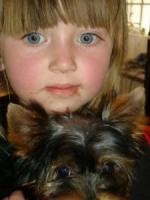|
News 2010-12-02 Tales from a DOG BEHAVIOURIST - Grief and Mourning
TALES FROM A DOG
BEHAVIOURIST:
Grief and Mourning
Losing a beloved companion animal is always a difficult and heart-wrenching event. It is amazing to think that we can form bonds with another species to the extent that their loss can shatter our world. But what of members of the same species? We mourn the deaths of people close to us, but do dogs grieve for their mates? The simple answer, is yes. Dogs have similar emotions to humans: they feel fear, happiness and frustration. This is one of the reasons why people and dogs have always been attracted to each other – we can communicate emotionally. And dogs definitely feel loss when they lose a companion. In the wild, wolf packs go through a period of instability and recognisable mourning when they lose a pack member. There is even a documented case of an alpha female refusing to take another mate after her alpha male died. Foxes mate for life and form strong bonds with their mates, possibly explaining why a female fox was seen to bury her mate following his death. Our dogs’ ancestors and closest relatives show clear signs of grief. When a dog’s companion, whether it be another dog, a person or even a cat, dies, they feel emotional pain. They grieve and they mourn. Many dogs’ behaviour alters dramatically following the death of a companion. They may become destructive, stop eating or howl and whine continuously. Some dogs become depressed and lethargic, or may develop health problems. In extreme cases, dogs have been known to fade away and die, seemingly unable to live without their companion. It is crucial for dog owners to respond appropriately to their pet’s grief, to ensure that they move on and recover from their loss. Although you may be dealing with your own grief, remember that your remaining animals will look to you for guidance and will follow your example. If you mourn your lost animal for too long, your other animals will suffer. Dogs are capable of recovering from loss quite quickly, and this should be encouraged. Stick to the usual routines, and maintain consistency in exercise, feeding and attention. Do not reinforce their grief by smothering them with attention or extra food – that may make you feel better, but it will not help your dog. Many people want to get another pet after one has died. This can be a healthy action, if done correctly. If you had two dogs, and one dies, then getting another companion will be good for your dog. However, allow your dog a few weeks to mourn before choosing another animal, and ensure that you have recovered from your loss as well. It is not fair, and generally not a good idea, to bring a new animal into a home full of sadness. And remember that you will never be able to replace the animal you have lost – a new puppy may look similar to your lost dog, but they are not the same and will not fill the hole your dead dog has created. Losing an animal or a person is one of life’s inevitable hardships, for people and animals. If you feel you cannot cope with your loss, speak to a counsellor. If your dog is having trouble moving on, consult with a behaviourist.
Katherine Brown BA HONS PSYCH (UJ)
Dog Behaviourist
Copyright Katherine Brown 2010
|




